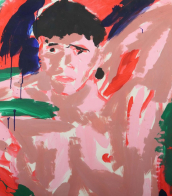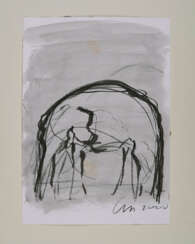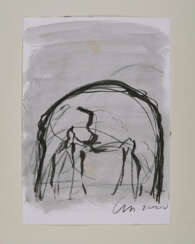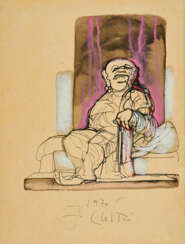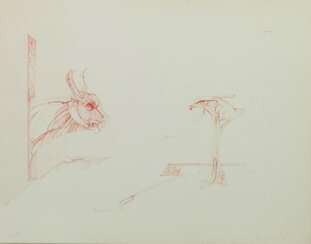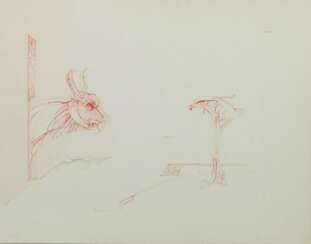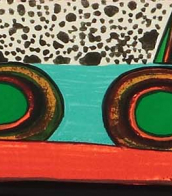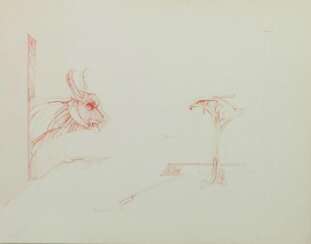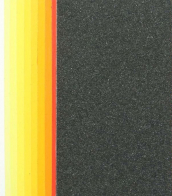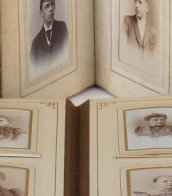fabrizio clerici
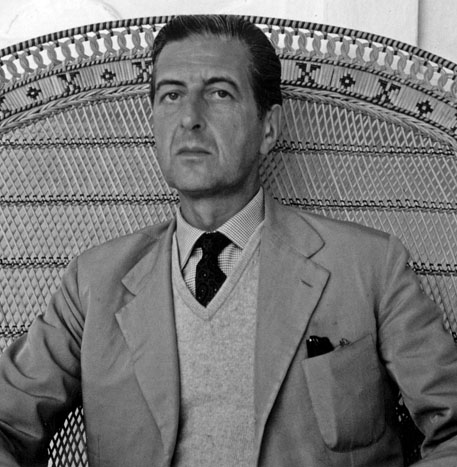
Fabrizio Clerici was an Italian painter, draftsman, illustrator, scenographer and architect.
Clerici earned a degree in architecture and was greatly influenced by antiquities, Renaissance and Baroque painting and architecture. In 1943, Clerici held his first solo exhibition at the Galleria dell'Arte Cairola in Milan, featuring drawings, watercolors, lithographs and etchings. His first book illustrations belong to the same period.
In 1947, Clerici began a prolific career in theater, ballet and opera with his debut as a stage designer in a production of George Bernard Shaw's play Mrs. Warren's Profession. The following year he participated for the first time in the Venice Biennale. There he met Salvador Dalí and created the sets and costumes for Igor Stravinsky's Orpheus, which was performed at the La Fenice Theater. In 1949 he created large-scale architectural fantasy paintings.
The further life of the multifaceted artist Fabrizio Clerici was full of work in a variety of fields of art, creative successes and exhibitions. His work has been exhibited in many museums in the United States, including MoMA and the Guggenheim Museum, as well as in France, such as the Pompidou Center.


Fabrizio Clerici was an Italian painter, draftsman, illustrator, scenographer and architect.
Clerici earned a degree in architecture and was greatly influenced by antiquities, Renaissance and Baroque painting and architecture. In 1943, Clerici held his first solo exhibition at the Galleria dell'Arte Cairola in Milan, featuring drawings, watercolors, lithographs and etchings. His first book illustrations belong to the same period.
In 1947, Clerici began a prolific career in theater, ballet and opera with his debut as a stage designer in a production of George Bernard Shaw's play Mrs. Warren's Profession. The following year he participated for the first time in the Venice Biennale. There he met Salvador Dalí and created the sets and costumes for Igor Stravinsky's Orpheus, which was performed at the La Fenice Theater. In 1949 he created large-scale architectural fantasy paintings.
The further life of the multifaceted artist Fabrizio Clerici was full of work in a variety of fields of art, creative successes and exhibitions. His work has been exhibited in many museums in the United States, including MoMA and the Guggenheim Museum, as well as in France, such as the Pompidou Center.
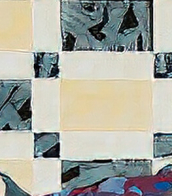

Fabrizio Clerici was an Italian painter, draftsman, illustrator, scenographer and architect.
Clerici earned a degree in architecture and was greatly influenced by antiquities, Renaissance and Baroque painting and architecture. In 1943, Clerici held his first solo exhibition at the Galleria dell'Arte Cairola in Milan, featuring drawings, watercolors, lithographs and etchings. His first book illustrations belong to the same period.
In 1947, Clerici began a prolific career in theater, ballet and opera with his debut as a stage designer in a production of George Bernard Shaw's play Mrs. Warren's Profession. The following year he participated for the first time in the Venice Biennale. There he met Salvador Dalí and created the sets and costumes for Igor Stravinsky's Orpheus, which was performed at the La Fenice Theater. In 1949 he created large-scale architectural fantasy paintings.
The further life of the multifaceted artist Fabrizio Clerici was full of work in a variety of fields of art, creative successes and exhibitions. His work has been exhibited in many museums in the United States, including MoMA and the Guggenheim Museum, as well as in France, such as the Pompidou Center.


Fabrizio Clerici was an Italian painter, draftsman, illustrator, scenographer and architect.
Clerici earned a degree in architecture and was greatly influenced by antiquities, Renaissance and Baroque painting and architecture. In 1943, Clerici held his first solo exhibition at the Galleria dell'Arte Cairola in Milan, featuring drawings, watercolors, lithographs and etchings. His first book illustrations belong to the same period.
In 1947, Clerici began a prolific career in theater, ballet and opera with his debut as a stage designer in a production of George Bernard Shaw's play Mrs. Warren's Profession. The following year he participated for the first time in the Venice Biennale. There he met Salvador Dalí and created the sets and costumes for Igor Stravinsky's Orpheus, which was performed at the La Fenice Theater. In 1949 he created large-scale architectural fantasy paintings.
The further life of the multifaceted artist Fabrizio Clerici was full of work in a variety of fields of art, creative successes and exhibitions. His work has been exhibited in many museums in the United States, including MoMA and the Guggenheim Museum, as well as in France, such as the Pompidou Center.
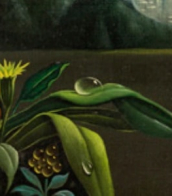

Fabrizio Clerici was an Italian painter, draftsman, illustrator, scenographer and architect.
Clerici earned a degree in architecture and was greatly influenced by antiquities, Renaissance and Baroque painting and architecture. In 1943, Clerici held his first solo exhibition at the Galleria dell'Arte Cairola in Milan, featuring drawings, watercolors, lithographs and etchings. His first book illustrations belong to the same period.
In 1947, Clerici began a prolific career in theater, ballet and opera with his debut as a stage designer in a production of George Bernard Shaw's play Mrs. Warren's Profession. The following year he participated for the first time in the Venice Biennale. There he met Salvador Dalí and created the sets and costumes for Igor Stravinsky's Orpheus, which was performed at the La Fenice Theater. In 1949 he created large-scale architectural fantasy paintings.
The further life of the multifaceted artist Fabrizio Clerici was full of work in a variety of fields of art, creative successes and exhibitions. His work has been exhibited in many museums in the United States, including MoMA and the Guggenheim Museum, as well as in France, such as the Pompidou Center.
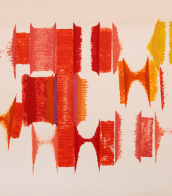

Fabrizio Clerici was an Italian painter, draftsman, illustrator, scenographer and architect.
Clerici earned a degree in architecture and was greatly influenced by antiquities, Renaissance and Baroque painting and architecture. In 1943, Clerici held his first solo exhibition at the Galleria dell'Arte Cairola in Milan, featuring drawings, watercolors, lithographs and etchings. His first book illustrations belong to the same period.
In 1947, Clerici began a prolific career in theater, ballet and opera with his debut as a stage designer in a production of George Bernard Shaw's play Mrs. Warren's Profession. The following year he participated for the first time in the Venice Biennale. There he met Salvador Dalí and created the sets and costumes for Igor Stravinsky's Orpheus, which was performed at the La Fenice Theater. In 1949 he created large-scale architectural fantasy paintings.
The further life of the multifaceted artist Fabrizio Clerici was full of work in a variety of fields of art, creative successes and exhibitions. His work has been exhibited in many museums in the United States, including MoMA and the Guggenheim Museum, as well as in France, such as the Pompidou Center.
